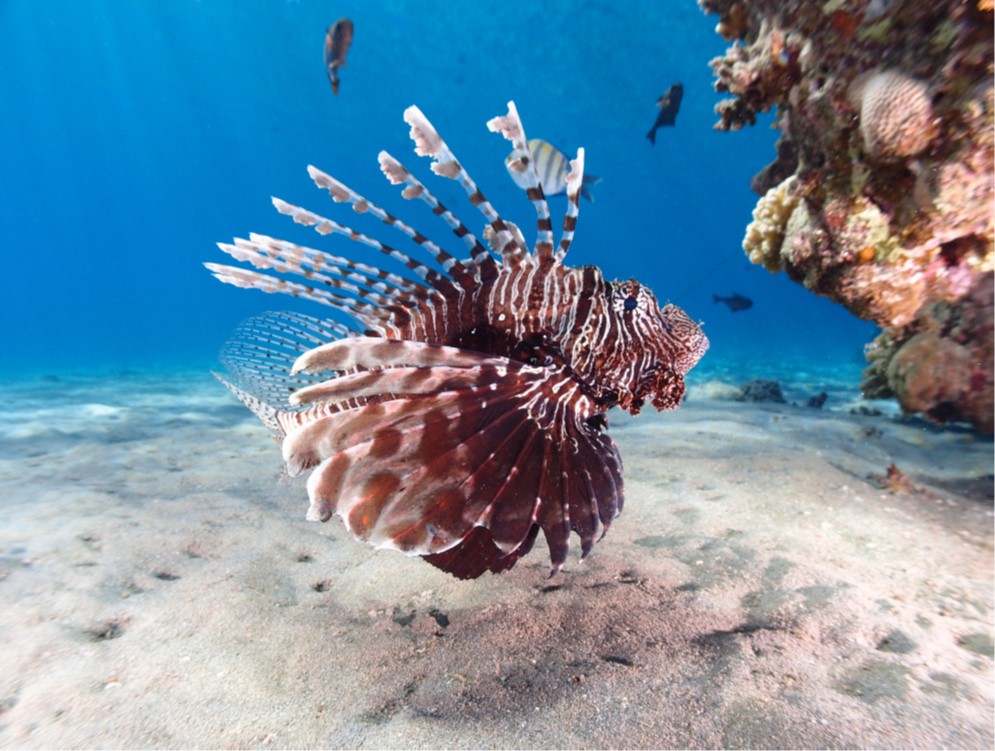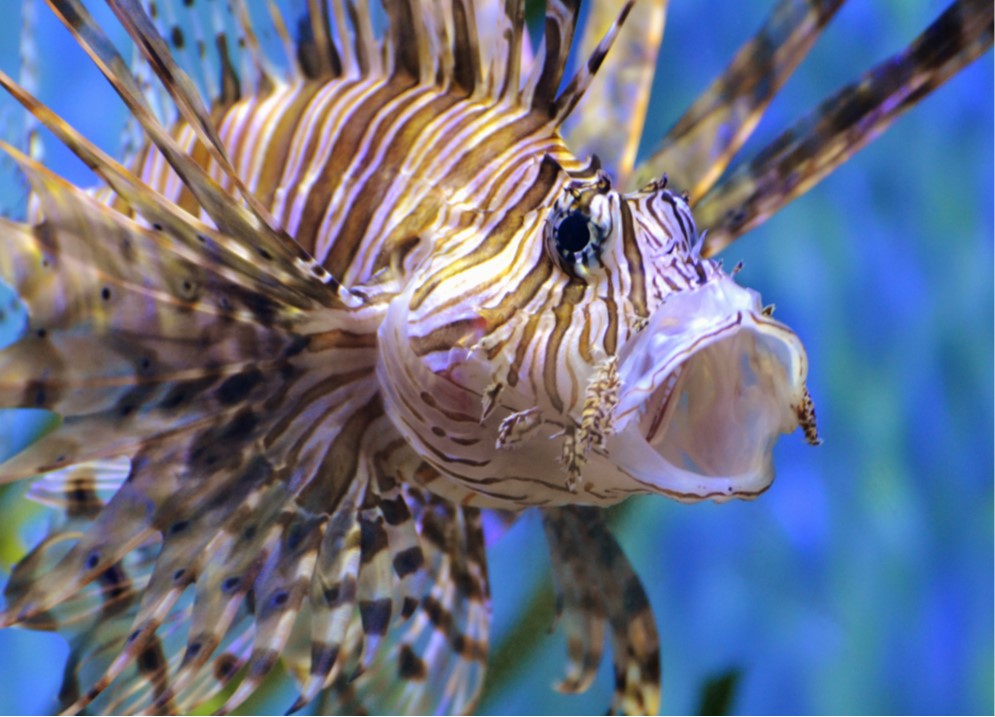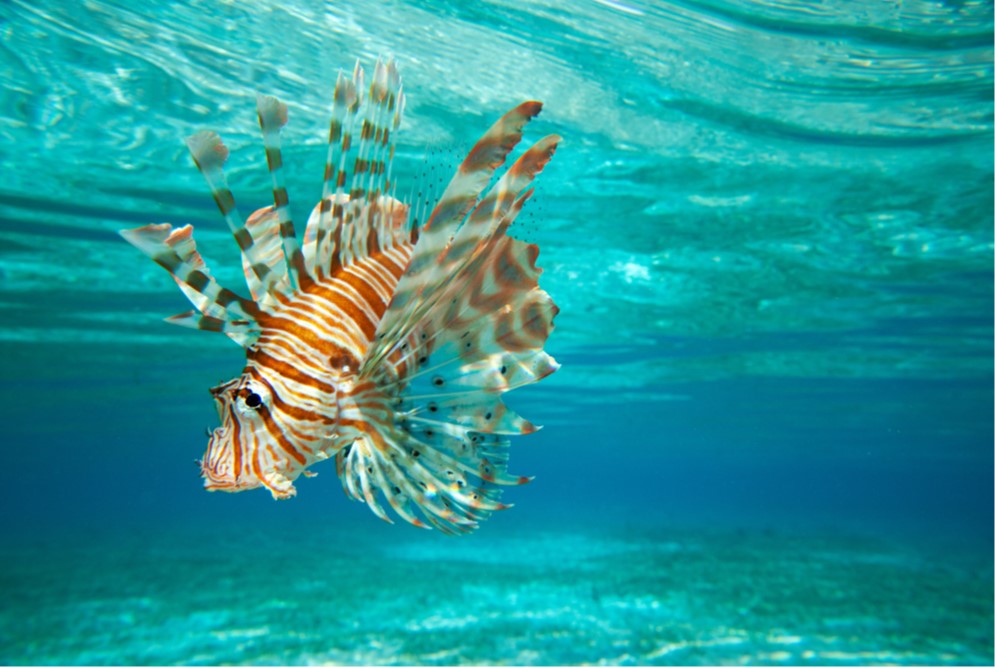The lionfish: Definitely the most famous fish in the Red Sea!
Lionfish are a fascinating group of fish native to the Red Sea. They are characterised by their bright colours, their long spines and their poisonous fins. They are not only beautiful to look at, but also important members of the ecosystem.

What does a lionfish feed on?
The lionfish feeds mainly on small fish, crustaceans and molluscs, which it sucks in with its large mouth. It hunts mostly at night and hides in caves or coral reefs during the day. The y have few natural enemies as their venom is potentially lethal to other animals. However, it can be eaten by some larger predatory fish such as sharks or barracudas.
The lionfish as an invasive species
However, lionfish are also a threat to biodiversity when they are introduced into other waters. This has happened in recent years in the Atlantic and the Mediterranean, where lionfish have no natural controls and reproduce rapidly. They can displace native species and disturb the balance of the ecosystem. Therefore, despite their fascination for us divers, it is important to prevent the spread of lionfish.
Fortunately, they are native here in the Red Sea and we can enjoy the grace and colourfulness of these fish right here at our house reefs in Dahab. So as you can see they are both an asset and a challenge to the marine world. They are an example of how nature can surprise us with its beauty and diversity, but also of how we need to treat it responsibly.
What to do if you see a lionfish while diving or snorkelling?
Admire its beauty, but do not disturb it. They are an important part of the marine ecosystem and play a role in controlling the population of other fish, which they paralyses with their venom and then eat. It is also a popular photo subject for divers and snorkellers, who are attracted by its colourfulness and exotic appearance.
However, you should not feed, attract or try to catch or kill the fish. This can alter its behaviour, endanger its health or upset the balance of the ecosystem. It is also illegal! They are not an aggressive fish, but they can sting in defence. To avoid a sting, keep a safe distance from it and do not touch or feed it. Also, always wear gloves and a wetsuit when diving or snorkelling to protect your skin.

What should you do if you are stung by a lionfish?
They are one of the most poisonous fish species in the world. Its spines contain a powerful neurotoxin that can cause severe pain, swelling, nausea, vomiting and, in rare cases, even respiratory distress or cardiac arrest. If you are stung by a one, you should follow these steps:
- Clean the wound of prickles or tissue remnants and disinfect it.
- Bathe the affected limb in water that is as hot as possible (not above 45°C) for at least 30 minutes to relieve the pain.
- Consult a doctor or call the ambulance to get antitoxic treatment and avoid possible complications.
What to do if you see a lionfish outside its natural habitat?
If you find a lionfish outside the native Red Sea, check local regulations and recommendations. If the lionfish is considered an invasive species in the area, it may even be allowed or encouraged to remove or harvest the fish to control its spread. However, you should only do this if you have the necessary experience, equipment and permit. Check with the local authorities or dive centres about the rules and regulations before you dive.
Lionfish are native here in Egyppt and it is illegal to remove or kill them!

The lionfish is an impressive animal that deserves respect and admiration. If you want to observe it in its natural habitat, our house reef is an ideal place to do so. As always, be careful and responsible. This way you can have an unforgettable experience and protect the marine environment at the same time. If you would like to learn more about different fish species and how to recognise them, we recommend you book our SSI Fish Identification Course!


